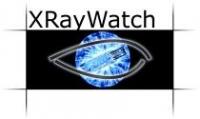XRayWatch: Managed File Transfer

XRayWatch controls the data exchange of all users network-wide according to centrally defined guidelines. The user rights are defined on network shares, local directories or mobile storage devices, i.e. USB sticks, CD/DVDs, cameras etc. – a clear and useful guideline can be defined in a few minutes.
Take information security seriously
A memory stick with a certain serial number has been granted to a specific user. But can you control what the user is doing with that device? XRayWatch protects company confidential information against data theft. XRayWatch protects the company network against hostile or unauthorized data, i.e. malicious code.
Proactive protection against the forbidden
Your patents should not be stored onto memory sticks – readable for everyone? You do not want a user to import executable files from a mobile data storage medium to your network? XRayWatch individually defines per user who may read which data from where and who may export it to what target – to the network shares, locally to the hard drive or to mobile data storage devices.
Log the permitted
Many users are allowed to read and change information in a company. They should not be limited in doing so. But sensitive information requires the conservation of evidence, as the following questions may need to be quickly answered: Who patched the Login.exe of a board member work station with a Trojan Horse? Who read the contents of an ad-hoc message for the stock exchange before the publication?
Check contents - not file names
Most companies check the content and file names of exchanged data with their firewalls. Why only there and not on the broadband interfaces of the PCs? Clever users already know to change file names in order to avoid central guidelines. With its semantic and syntactic Pattern Matching XRayWatch offers a detailed check of all exchanged data at all ports and interfaces – the re-naming of the file becomes useless.
Company guidelines are individual
Word documents may contain an executable program as an embedded object. The customer should be able to decide whether he would like to allow it or not. Obviously, confidential Word documents should be treated differently from publicly accessible documents of the same type. XRayWatch provides a Pattern Check that can be optionally extended or modified by our customer – “MyCompany confidential“ in the header of the file can be one of the defined criteria.
Compliance
Data Protection Acts require special protection measures for the storing of person-identifiable data to mobile data storage media. With the Pattern Match technology of XRayWatch you are able to identify person-identifiable data and to block its export or enforce an encryption with PDWatch or any other encryption suite.
Local Safe
Information that needs special protection can be stored in the Local Safe of the local hard drives. With XRayWatch you can control which data goes in and out of the Safe: proactively blocked, logged or encrypted. The user can only access the local Safe with special trustworthy programs – the customer defines these programs. PDWatch and XRayWatch enable the implementation of very complex requirements in the areas of Application Control, Endpoint Security and Information Leakage Prevention.

